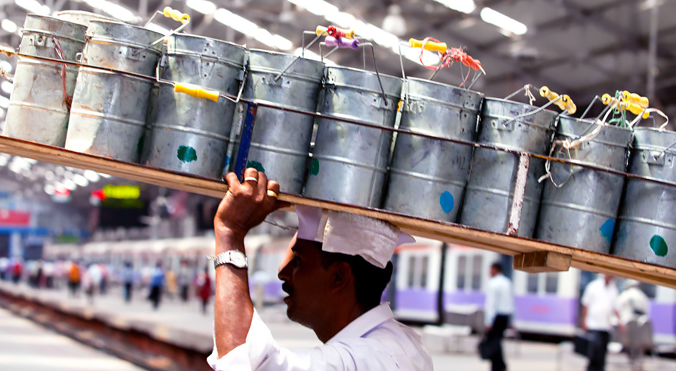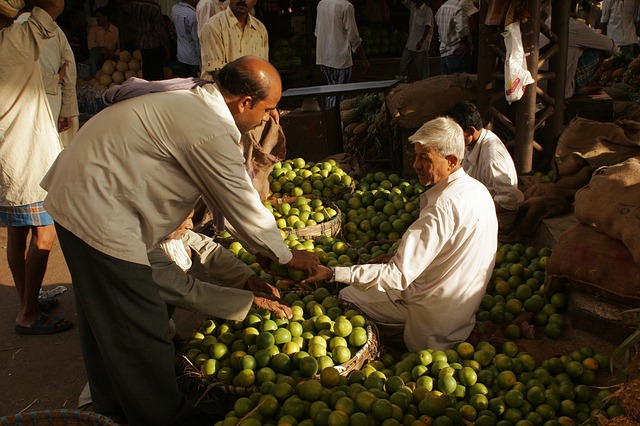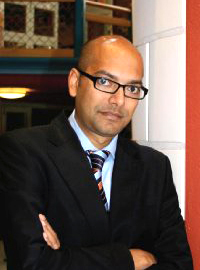
Submitted by Administrator on Tue, 10/07/2018 - 09:47
Meet Professor Jaideep Prabhu
Professor Jaideep Prabhu is fascinated by simple solutions to complex challenges. He co-authored a breakthrough work described by The Economist as the most comprehensive book on the subject of frugal innovation. His focus is the large, poor populations of developing countries and their need for simple and affordable solutions to improve their lives. Jaideep is Jawaharlal Nehru Professor of Indian Business & Enterprise, and Director of the Centre for India and Global Business, at Cambridge Judge Business School.
Q: Where are you from?
A: I grew up in India, then I did my PhD in California, and I’ve worked in The Netherlands and here in Cambridge. I don’t really know where I’m from any more!
Q: Tell me something about the food in India.
A: It’s wonderful, and very diverse. Tiffin is the word to describe a snack or meal. In Mumbai we have the famous dabbawalas - the people who deliver hot, home-cooked food to hundreds of thousands of office workers every day. They go to your home in the morning, pick up your tiffin box filled with freshly cooked food, and then use suburban trains, cycles and carts to get it to your office in time for lunch. Their delivery accuracy rate is 99.99% - only one tiffin box in a hundred thousand goes astray. And they do it using things like colour coded ribbons. This has been studied a lot, including by people in business schools, to understand how they get it right with so little technology.

Dabbawala carrying tiffin boxes
Q: Why are you here in Cambridge?
A: My academic career brought me here. I’m interested in innovation and I study emerging markets, particularly India. Cambridge is a great place to be for that.
Q: What’s the purpose of your research?
A: I’m interested in innovation in low income communities, or resource-constrained contexts. I call it ‘frugal innovation’; essentially, how we can deliver products and services to meet the needs of very large numbers of people who still live on the fringes of the formal economy. Around four billion people, that’s more than half the world’s population, fall into this category. Many of them are in developing countries, but some are in the developed world too. They generally don’t have good access to very fundamental things like food, healthcare, education, energy, or financial services. The big challenge is how to meet their needs without wrecking the planet.
Q: How is that relevant to Global Food Security?
A: Food security is at the heart of this challenge. Nutritious food is a very basic human need, and it often requires energy and water to produce, and to distribute through the supply chain. It also requires the use of another scarce resource: arable land. In a country like India that’s very densely populated, there are lots of pressures on land-use for activities other than farming. Some people would prefer it be used for mining, or to set up factories or hydroelectric plants, for example.
The need for frugal innovation is very closely linked to food supply. It’s also linked to food demand, because the ability to buy and consume nutritious food is linked to livelihoods. In communities where people don’t have incomes and the means to improve themselves, the pressure on the land becomes more intense. If you over-farm the land, or over-use your resources, then you go into a negative spiral of getting poorer and poorer as your environment gets poorer and poorer. In the past that negative cycle has even led to the collapse of civilisations. Frugal innovation is about trying to tackle these problems both from the supply and demand side, to find better ways of delivering solutions to many people. Equally it’s about providing livelihoods so people can make better use of their scarce resources.
Q: Can you give an example of how frugal innovation is delivering better food solutions?
A: Farmers in lower income countries are often not very entrepreneurial. By that, I mean they don’t have the information they need to make informed decisions about when and where to sell their produce. They’re often price-takers, not price-makers. For instance, they’ll take their produce to the market on the day they’re ready, not knowing the demand in that marketplace. The farmers might all arrive at the same marketplace at the same time, so then there’s a glut and the price falls through the floor. They might end up having to give their food away.
The mobile phone has changed this. Mobile phones have become ubiquitous in countries like India because the providers understood that they had to be highly affordable. Without bank accounts many people can’t sign up to a monthly payment plan, so the phone companies made cheap pre-paid scratch cards instead. Now more people have mobile phones than have access to drinking water or vaccinations. And there are services using mobile phones to send farmers information on the price of selected crops in selected markets on a particular day – affordable innovations taking advantage of other affordable innovations. Now farmers can be more entrepreneurial about what to sell where. There’s less food wasted, the farmers get a more stable income, and buyers have a more predictable price. Things like this are making a big difference.

Farmer selling fruit at the market, Bombay
Q: Do you feel part of something bigger than yourself?
A: Absolutely. That’s why I’m so passionate about this work. What inspires me is that there are so many people doing these impressive things everywhere. Some of them are at the grassroots level, others are working in cities using technology to come up with new solutions. Providing clean energy for cooking is another big issue. Hundreds of millions cook indoors using very poor quality fuel, which is bad for their health and for the environment. I’m talking with a company in Cambridge that’s thinking about how to produce low-cost appliances for such populations that are powered by solar energy.
Q: What’s the one piece of advice you’d give to others who want to follow in your footsteps?
A: Spending time in the field is very important. It’s something I didn’t do for the first part of my career. I sat in my office and looked at my computer screen, reading research papers and data. That’s all very well, but I don’t think I can honestly say I really understood the kinds of things I was looking at until I went out to see things and talk to people. Very often researchers start by looking at the literature and finding a gap in it. I like to start by understanding what people are actually doing, what the challenges are, and then working backwards to find the interesting intellectual questions. It’s not easy, and of course you still need to spend time at your computer.

Jaideep at Cambridge Judge Business School
Q: What would make the world a better place?
A: I’m biased, but I think more of this kind of frugal innovation would help. We need more people studying this area, developing these kinds of innovations, disseminating them, and scaling them.
More information:
Jaideep’s book: Jugaad Innovation: Think Frugal, Be Flexible, Generate Breakthrough Growth has just been nominated for the PWC 2018 ‘Business Book of the Year’ in Russia.

